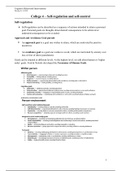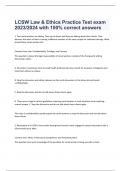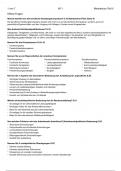College aantekeningen
CBI lecture 4 - Self-regulation and self-control
- Instelling
- Universiteit Leiden (UL)
Fourth lecture of the CBI course. The document contains a detailed summary, discussing the topics of self-regulation and self-control. The part about self-regulation is based on chapter 8 of the CBI book 'Cognitive Behavior Therapy: Core Principles for Practice' (O’Donohue & Fisher, 2012). The ...
[Meer zien]











